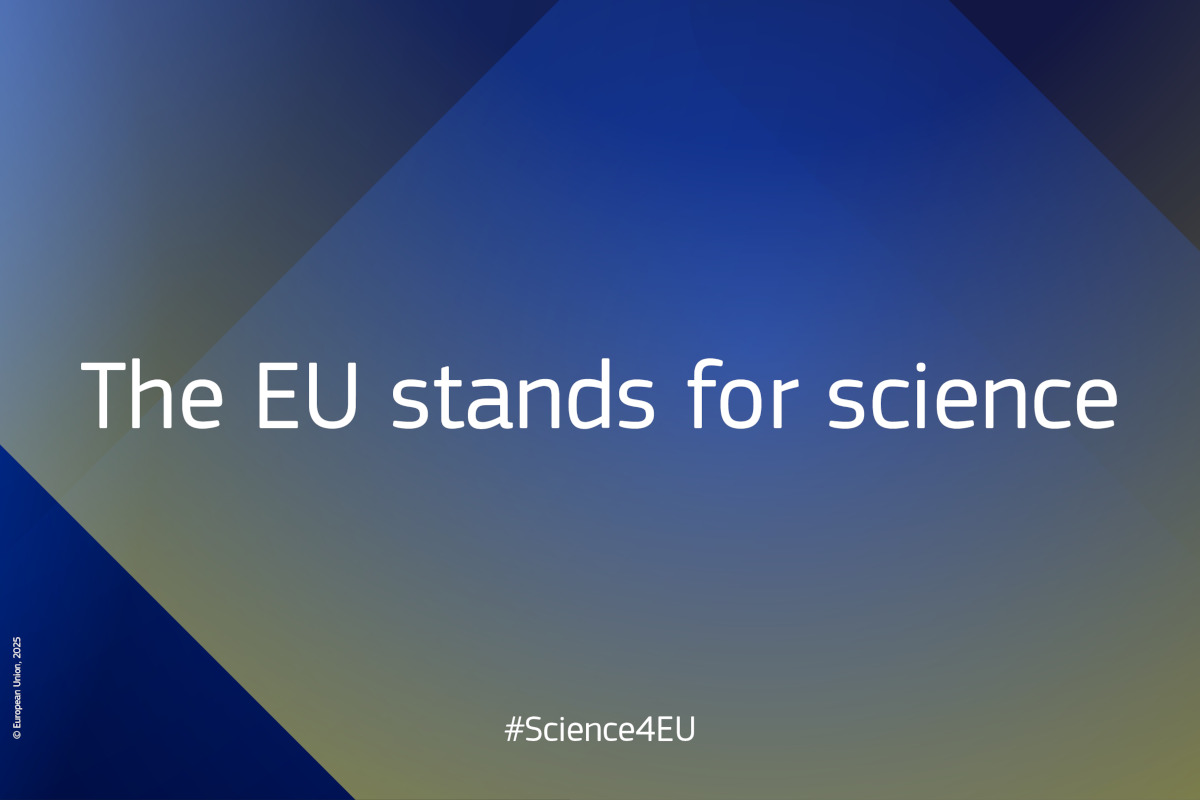The human brain is more powerful and energy-efficient than any computer. Scientists are imitating the way it works to produce better computer chips and help deal with the growing amounts of data generated every day.
Special series

Science4EU
The Science4EU campaign shows how the EU stands for science. It shines a spotlight on the scientists, researchers, and innovators working with EU support to improve our lives and shape a better future for everyone.
Do you also stand for science?
More stories

Across Europe, researchers and industry are making digital education better, smarter and more accessible. By building strong partnerships and sharing knowledge, they are helping shape a future where everyone benefits from high-quality online learning.

Europe’s expansive inland waterways remain underutilised despite their potential. Researchers and industry partners are developing innovative tools, such as digital simulations of river flows or blockchain-powered pollution control, that support smarter, more resilient and sustainable inland waterway transport.
Most popular
-
1
-
2
-
3By Helen Massy-Beresford
-
4By Vittoria D’Alessio
-
5By Michaela Nesvarova
Top videos
Sea of possibilities: the underwater gardeners restoring marine forests
6 June 2025
In the right circles: Europe’s cities and regions lead the green transition
2 June 2025
Past articles
A third of a million Europeans get ill every year from diseases caused by contaminated water. Researchers now hope that smart biosensors can help them develop an early warning system that can prevent infection by raising the alarm long before contaminated floodwater reaches people’s drinking water supplies.
A Mediterranean-style diet rich in fish, fruit and olive oil can help people live longer, and scientists believe this could be because of its effect on the bacteria in our stomachs.
Clad in white radiation suits with triple layer-gloves, police and nuclear experts carefully probe the debris of an amateur dirty bomb.
From quadruple-glazed windows to planes whose fuselage can be electrically heated, graphene is changing the world.
Scientists are developing technology to protect towns and villages against earthquakes by drilling holes in the ground.
Solving major challenges like finding alternatives to fossil fuels and new antibiotics, boosting the competitiveness of EU industry in sectors that provide good jobs, and bringing research to market – these are the main aims of the EUR 22 billion research partnerships between the EU, industry and Member States that the European Commission announced on 10 July.
Researchers believe they can take on drug-resistant superbugs by changing the way that drugs are prescribed in hospitals.
They charge in seconds and could run your laptop for a month – supercapacitors are coming, and it’s thanks to graphene, one atom-thick sheets of carbon that are revolutionising industry.
European researchers are heading to some of the deepest and coldest places on the planet as part of a race against time to find new medicines that can protect society from increasingly drug-resistant bacteria.
Fighting global warming with mirrors in space or by seeding clouds would cool the Earth, but the side effects could outweigh the benefits, researchers have concluded.
New medical devices working with particles so small that they are invisible to the human eye are paving the way for earlier cancer detection, helping save lives.
A Scotland-based scientist and his team are closing in on a way to build a life form from scratch, and their work is challenging the fundamental assumption that life only exists in animals, plants and microbes.
Researchers studying one of the major regulatory proteins in the brain are advancing knowledge about the behaviour of certain genes upon epileptic seizures.
The European Very Large Telescope (VLT), one of the most powerful and productive ground-based astronomical facilities in existence, has just turned 15 years old.
Researchers who can monitor a cancer tumour as it changes and help direct radiation right into its centre believe they may be able to increase the efficiency of cancer treatment by at least a sixth.
European scientists are preparing to notch up a world first in satellite formation flying. Two spacecraft will soon be flying side-by-side with extreme precision.
Car fuel made from agricultural waste could help cut down carbon usage without taking up land that is used to grow food. It is one innovation that could help the biofuels industry shift up a gear.
Professor Dirk Verellen, director of the medical physics group at the Medical Faculty of the Free University of Brussels, outlines his vision on the future of radiotherapy in Europe.
Each Autumn, just before the announcement in Stockholm of the genuine Nobel Prize laureates, a band of merry men at Harvard University distribute the ‘Ig Nobel Prizes’. These awards recognise real research work that make people laugh… and then think.
A carry-around device or implant to predict or prevent seizures could be life changing for millions of people with epilepsy.




























